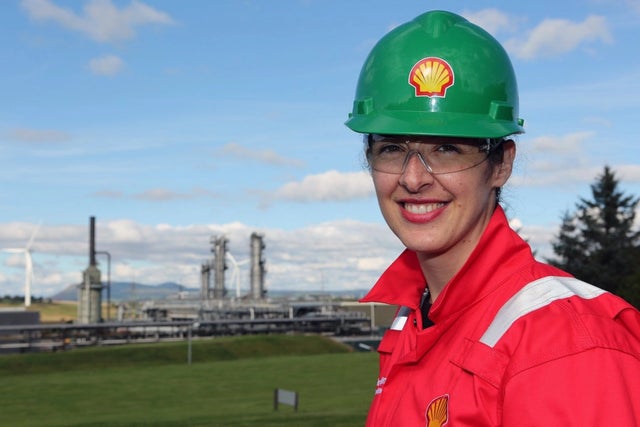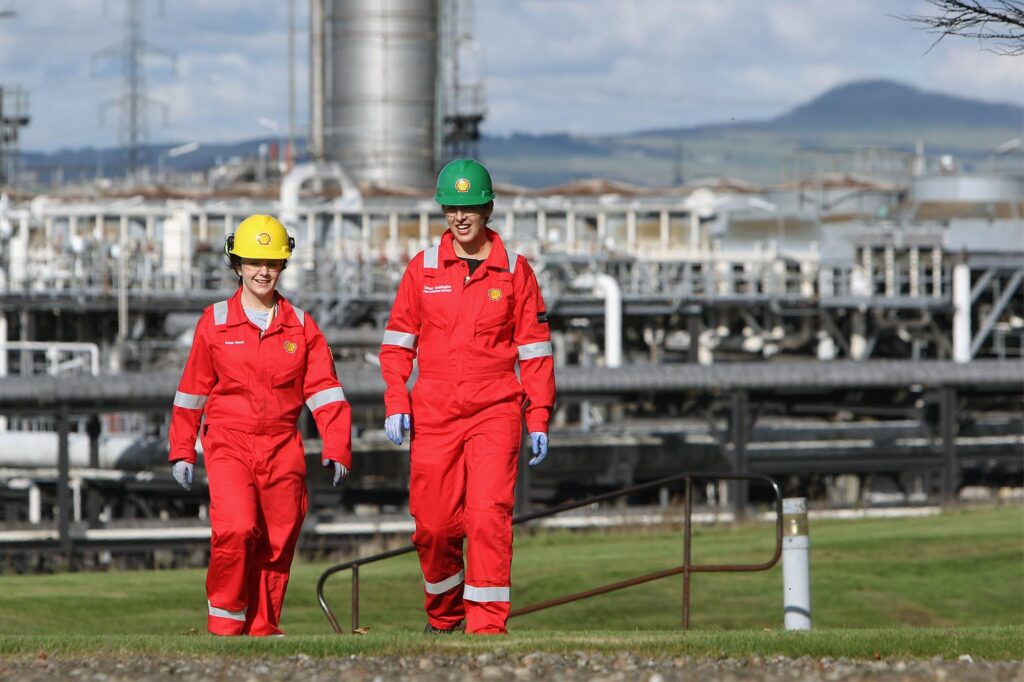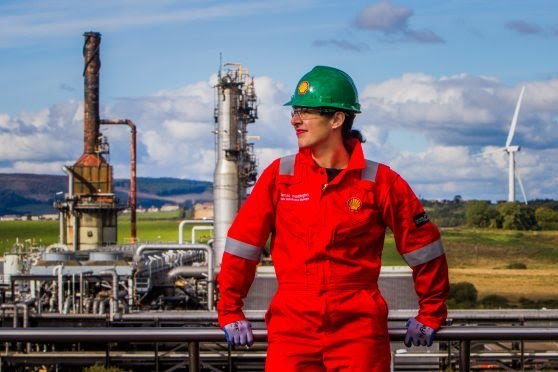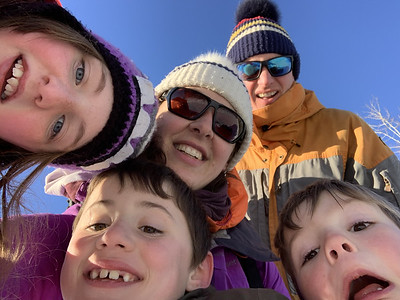
Teresa Waddington is the Asset HSSE Manager for the LNG Canada project, on secondment from Shell. Exposed to the world of engineering at relatively young age, courtesy of her mum and dad – a chemical and mechanical engineer respectively – a big part of her childhood involved family trips to hydroelectric dams and factories.
Those experiences, she says, helped set the wheels in motion for her own career, as well as that of her siblings. “Looking back now it was probably a bit strange,” Teresa said. “But I think it is how the three of us, my brother, sister and I – who are all engineers by the way – grew up with this concept of industry and operations.”
High school marked an important decision point for Teresa, where she had to choose between a passion for maths and science, and a love of English and writing. It was her dad who helped her decide, saying, “you can write without an English degree, but you need to study engineering to become an engineer”. Writing became her back-up.
Upon graduating, she applied for countless roles, across more than 80 different bike and ski manufacturers; hobbies shared by her and husband Andrew, who were high-school sweethearts. No one replied.
There was one company that did offer her a job. Shell. The only energy company Teresa had applied to. She joined shortly after as a project engineering graduate and hasn’t looked back. She said: “This is an industry I have grown to love. What I’ve realised is how much I enjoy being involved with a big company that has made such radical changes to energy access, and that is doing such important work in terms of how the world functions.”
Since then, her career has involved a few important decision gates. Opting to stay in Canada in the early days of joining Shell was the first; a decision made to allow her to remain in the same country as Andrew. After navigating a long-distance relationship as students, the pair were thrilled to be reunited and didn’t want to give that up.
It was a decision that took her out of engineering and into a commercial role, before she “talked her way back into engineering” almost three years later, following the birth of her first child. A series of technical roles followed, and the arrival of baby number two. Teresa said: “Those first seven years of my career were mostly about me begging and pleading for roles I wanted, and then proving I could do them.”

It was after her third child that Teresa made one of her most important career decisions to date. She said: “I was offered a really amazing opportunity – a project worth more than a billion dollars that was running very late. People said, ‘don’t touch that with a 10-foot pole, it’s a career destroyer’. I said, ‘sign me up!’. That was a critical pivot for me. Through what I delivered in that role, I was suddenly catapulted from the first 10-years of my career, where I’d had no direct reports and had kind of been bumping along. I found myself with a promotion, a team of 80 people and a community underneath me, as Maintenance Manager at a mine site in Northern Canada.”
After turning the project around and continuing to deliver results, she was asked to move to Scotland to manage a gas plant with 250 people. Working with the team there added another successful outcome to her resume. The recipe to their success, Teresa said, was simple: “I just listened to the people there, who had incredible expertise, knew what was going on and just needed someone to partner with, to open up the floor and bring all the critical skills together.”
Following that role, Teresa found herself in the enviable position of having two exciting opportunities to choose from; one of which was her current position.
It appealed to her for many different reasons, with Teresa saying: “LNG Canada is a multi-billion-dollar project and a non-operated venture, with a consortium of five companies coming together to build a liquefied natural gas facility, which I find really interesting. It’s going to be one of the greenest natural gas facilities ever built and, something else that is really unique and different to the project, is how committed we are to partnering with indigenous communities. I am also excited to be able to contribute to something so big happening in my home country.”
Teresa’s family – including her parents, husband, brother and sister – have been an important influence on her D&I journey, shaping her perspective and providing important learnings about the value that can be derived from both demographic and cognitive diversity.

She said: “My mom was an engineer in a generation where the female engineering workforce was a staggeringly low 10 per cent or less. Women like her paved the way. Her story is so different to mine. It’s one of constantly struggling to maintain confidence, constantly fighting against the grain, but she persevered and eventually, she got to where she wanted to be. My dad was integral to that. He was the one who said, ‘why don’t you do engineering, why don’t you apply to the best engineering school?’. He has believed in her every step of the way.
“It was my husband that educated me about privilege. At the hospital where he worked, they stored all the narcotics in a cupboard, behind a lock and key. The key got hidden in the women’s locker room. So, even though he’s a registered nurse, with the same rights and abilities to prescribe and administer those drugs, he couldn’t access them without asking a female colleague for the key. He told his manager, who looked him in the eye and said, ‘I don’t see the problem?’. THAT is the definition of privilege, right there!
“Then there is my brother, a wells technical manager with an oil company. He has a young lady on his team, who does amazing work and is really capable. She’s also incredibly introverted and quiet. My brother just loves her – she is his highest performer every time. I think that sort of recognition is important – that you don’t have to be extroverted or outwardly confident to be good at what you do. Leadership can be reserved, it can be unobtrusive, it can be different. I think we’re still just starting to accept that and putting the champions in place to enable it.”
As well as her family, the D&I Task Group has been a great source of inspiration to Teresa. She said: “What has worked for me is seeking out those informed conversations, whether with individuals who are different to me, or those on the same journey. In that respect, the Task Group has been fabulous; that exposure to such a capable group of people who stretch my thinking on what D&I is, how we can we enable it and what else we can do.

“You can’t tell people to engage on D&I. Morally, and ethically, we all know the right answer, but it’s about uncovering your own biases and saying, ‘I’m not proud of that’ or ‘that’s not okay and I didn’t even think about it before’. You can’t change someone without their consent. We are there to encourage people to think about their beliefs and their biases, and to look at those dark corners and tackle them themselves.”
Can you relate to Teresa’s experiences? Have your say on D&I in the oil and gas industry today by participating in this industry-first survey here.